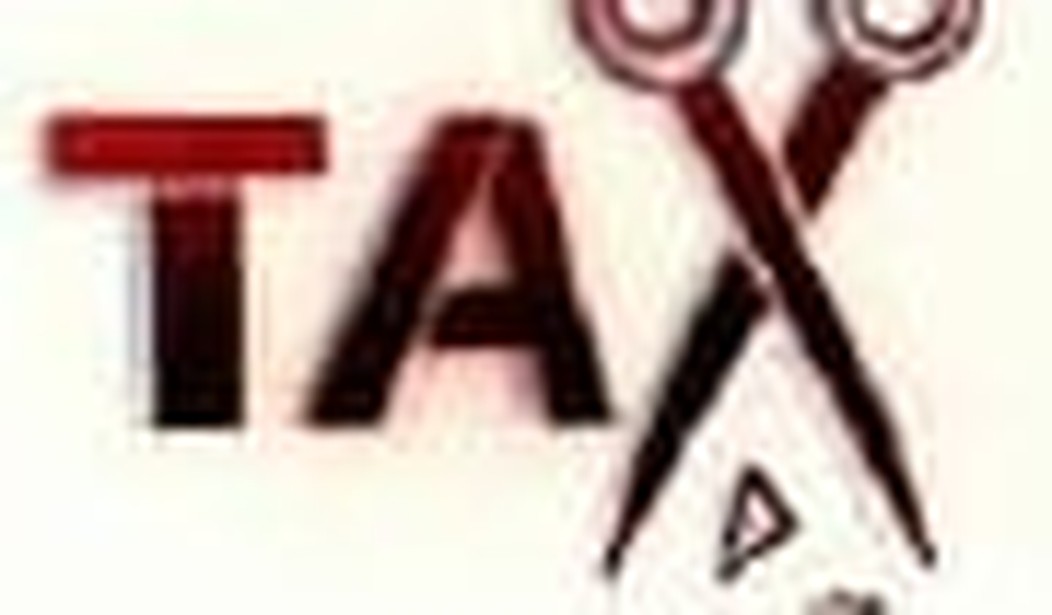President-elect Obama reportedly may include $300 billion of tax relief in his so-called stimulus scheme. Political prognosticators think this will give fiscal conservatives a reason to vote for the proposal, but lawmakers who favor limited government should look before they leap — especially if they actually want to improve economic growth.
The key thing to understand is that not all tax cuts are created equal. If policy makers want to boost growth, they need to reduce marginal tax rates on productive behavior such as work, saving, and investment. This “supply-side” insight is why the Kennedy and Reagan tax rate reductions were successful. It also is why flat tax jurisdictions such as Hong Kong and Slovakia enjoy such strong growth. And it is why zero tax regimes such as the Cayman Islands are beacons of prosperity.
Unfortunately, all reports indicate that the Obama plan will revolve around a gimmicky idea to give $500-$1,000 of tax relief to every household. Households certainly will be happy to receive this money, and I surely will cash any check that President Obama sends in my direction, but simply giving people money does not give them any reason to engage in additional productive behavior. And without more work, saving, investment, or production, there is no increase in national income.
Defenders of this type of scheme usually argue that distributing checks will result in people spending more money, which ostensibly will jump-start a sluggish economy. This is the Keynesian theory, but as this short video explains, it overlooks the fact that the government has to borrow every dollar that is being distributed to taxpayers or other recipients. So any money that is put in the economy’s right pocket first has to be taken out of the economy’s left pocket. Keynesian policies do not increase national income; they redistribute it. This, of course, is a pretty good summary of Obama’s entire so-called stimulus.
Wait a minute, some of you may be asking, doesn’t the same criticism apply to supply-side tax cuts? The answer is yes, but the argument for supply-side tax cuts has nothing to do with how much money people have in their pockets. Instead, advocates argue that the goal of good tax policy is to minimize the tax penalty on productive behavior. And if tax rates are low, then people will have an incentive to increase the quantity and quality of labor and capital they supply to the market. In other words, the goal of supply-side tax policy is to increase national income rather than to redistribute it — the opposite of the Obama agenda.
And it is worth nothing that more national income means a larger tax base, which is why pro-growth rate reductions lead to “Laffer Curve” effects. This does not mean that good tax cuts “pay for themselves.” That only happens in very rare cases. But it does mean that there is at least some degree of revenue feedback (for more information, see this three-part video series).
Ironically, Obama’s proposed tax cut is very akin to the tax rebates that President Bush pushed through in 2001 and 2008, and the rebate scheme Gerald Ford implemented in the mid-1970s. None of these Keynesian tax cuts had a positive impact on the economy, however, and there is no reason to think that the same policy will yield a different result under Obama.
In addition to repeating Bush’s mistake of lump-sum tax relief, President-elect Obama purportedly will give businesses greater ability to get refunds of taxes paid in prior years to make up for losses in 2008. That is not bad tax policy, per se, but reducing the tax burden on income earned in prior years is not exactly a good way to boost incentives to earn more and produce more in 2009 and beyond.
President-elect Obama also initially discussed a proposal to give businesses special tax credits for hiring new workers — and maybe even somehow provide tax credits for avoiding layoffs. This sounds tempting, but it inevitably would create a feeding frenzy of special tax advice as businesses figure out how to get their hands on some of the money by fiddling with their employment policies. Even left-leaning economists have admitted that the bulk of any tax savings will accrue to businesses — such as fast-food restaurants — that already plan on adding new workers. Fortunately, it appears that the incoming Obama administration already is backing away from this silly scheme.
An even better piece of news is that there are rumors of a few provisions that might actually help the economy grow faster. The Obama team reportedly is considering a policy of “bonus depreciation,” which would reduce the tax penalty on new investment. Unfortunately, the provision almost certainly would be temporary, so the main impact would be to encourage businesses to accelerate planned investments (rather than increase the total level of investment), but at least there would be a positive impact on national income.
If Barack Obama truly wants to give the economy a stimulus, he should emulate John F. Kennedy. The Kennedy tax cuts reduced marginal tax rates for all taxpayers (including the rich!). This improved incentives and helped the economy growth faster. Instead, though, it appears that most of Obama’s so-called tax relief will be allocated to ineffective handouts and special interest gimmicks. The only good news is that his tax proposals (at least the ones that will be in the phony stimulus bill) will not cause any real damage to the economy. That will happen at the end of next year when he plans on letting the economy get saddled with big increases in tax rates.









Join the conversation as a VIP Member